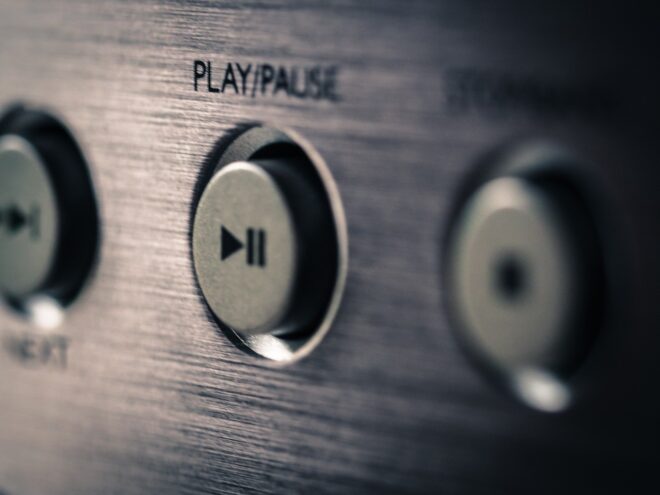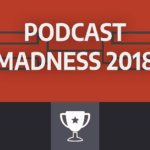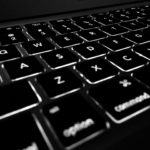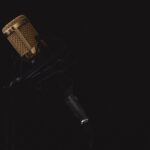The Podcast Editor Power Struggle: An Overview

Last updated on June 25th, 2021
Earlier this year, Michael McDowell highlighted diversity issues with the technology side of the industry, including podcast editor positions, with the piece ‘Pro Tools Proficiency May Be Keeping Us From Diversifying Audio’ in The Verge. The article, as the title clearly states, focuses on ProTools being used as a gatekeeper in the industry. This is an undeniable issue that McDowell went into a great deal into in this piece. I read about this issue then, and it was one of the reasons that I online-attended Acast’s Pro Tools tutorial in March 2021.
Since the DAW discussion has already been discussed in great detail, in this article I want to highlight other challenges that keep podcast editing from being a low barrier to entry space.
Thus, I’ll be sharing the largest barriers to entry that 9 Podcast Editors that I interviewed experienced in their journey into this field. Their backgrounds prior to podcast editing ranged from Marketing, Radio/Audio Production, Teaching Management, Music, Financial Communications and Media Strategy. Despite their differences in background, their frustrations while trying to enter the podcast editing space were remarkably similar. In short, the barriers were the what, where and how of podcast editing.
Challenge 1: What Is a Podcast Editor?
This is best described by bringing in some of the stories of the editors I interviewed. For example, after 12 years in Media Strategy, Christina Wisboro is in the process of transitioning into work as a Podcast Associate Producer. To prepare, she did a 9 week intensive podcast production fellowship with The Gotham earlier this year. To look for jobs, she signed up for listservs like Ladio (an email listserv for women in radio), is searching on LinkedIn, is doing some company research, and is redoing her website.
Wisboro and I spent a fair bit of time talking about podcast editing challenges and the process of defining what podcast editing means. This was a task that was repeated with nearly every interviewee.
To prevent any misunderstandings in this article, I’d like to state up front what roles I mean when I talk about a “podcast editor.” I’m using the bigger umbrella of podcast editing that encompasses:
- Podcast Producer (and Associate Producer)
- Podcast Content Editor
- Podcast Audio Editor
Think of it as someone who changes a podcast in any way, shape or form after it’s been recorded.
Solution 1: Podcast Taxonomy
It’s also important to mention that while I’m not using the terminology in the Podcast Taxomony, which was created in December 2020 by “Podchaser and Staff Me Up, representatives from across podcasting,” doing so would solve this confusion. According to this valuable categorization effort, I should be using terms like audio production, audio post-production, creative direction and possibly writing to cover the tasks that I envision a podcast editor to work on. However, I’m afraid that their terminology appears to be too new to be widely used in actual job postings that the interviewees are viewing during their job search. Instead, terms like Producer and Editor are more commonly and confusingly used.
Challenge 2: Unclear, Inconsistent, and Unreasonable Job Requirements
Neal of PodKnows Productions worked in radio for 20 years before entering the world of podcasting. When he was looking for work as a podcast editor, he noticed that a university degree was required for a lot of them. “We need to have an academy instead,” he suggested. He learned Cool Edit Pro (now Adobe Audition) on the job when DAWs replaced the good old tape and razor blade method of editing back in the mid-1990’s. It’s perplexing to him why a university degree would be required for these editing positions because it’s more of a hands-on experience than something you study.
Read more: Switching DAWs: A Tale of Four Digital Audio Workspaces
Jorge Palacios Jr. was a Kindergarten Assistant and Musician before entering the podcast editing space. When he got laid off in April 2020 he decided to direct this audio editing experience towards podcasts. The jobs he found did not require a university degree, but most of them did list 1-2 years experience in podcast editing specifically, so he felt that his time using DAWs for music was not seen as enough experience for these positions. The jobs also included more producing, scheduling and more tasks than he was looking for. He looked on popular job sites like LinkedIn and Indeed but he also used local Denver resources as well. The good news is that after 10 months, he was able to land a job as the Pastoral Associate for Liturgy and Music at Annunciation Catholic Church in Denver, Colorado.
James Errington of the Centuries of Sound podcast applied to many podcast editing positions online but did not have any interviews during the time he was actively looking for editing work. This is quite puzzling, since he has 14 years experience with Adobe Audition and audio restoration. Even so, his resume does show that he was in Teaching Management positions for a large portion of this time. He has since gotten another position in Education but still ponders why he was not contacted more about these editing positions. Interestingly though, he mentioned that he has received DMs (direct messages) on Twitter for editing work because of his podcast.
Solution 2: Help Share Best Practices to Standardize Skill Levels
Becky Celestina admits that she was very lucky getting jobs in podcasting. She’s no longer a podcast editor but after studying media in university, with an emphasis on film, she did an internship with Quick and Dirty Tips. After that she moved on to a Producer job at Macmillan for two and a half years. Nowadays, she is the Content Partner Manager at Acast. In fact, I first became aware of Celestina when she hosted a Pro Tools tutorial via Acast back in March 2021. Reading online posts about how women were “not capable” of podcast editing recently infuriated her. This made her think about why more women and other populations were not represented more in the space and propose this Pro Tools tutorial.
Steve Stewart was thrust into having a podcast editing business while he was working on his personal finance coaching business back in 2016. In a very short period of time he went from creating his personal finance podcast to having more podcast editing clients than he could handle solo. His solution was to set up a training program to find the right podcast editors to outsource to. About once a year since then he has held an affordable podcast editing class where he trains people on the basics of the craft. The students in the class know that there is a chance that he may hire them for freelance work after the course. One of the most interesting parts of the course is that it is not DAW specific. He shows how to do tasks in Audacity because that is his main DAW but students are encouraged to use any technology that they feel comfortable using.
Challenge 3: Location, location, location!
Location came up a lot in these interviews, ironically both as an advantage and disadvantage in getting podcast editing jobs.
Bekah Johnson did an audio engineering training program from 2005-2007 and then filled in the knowledge gaps by using the resources on Transom and Hindenburg’s online workshops. In 2012, she did an internship at On Being and then got a producer job with a different organization. Along the way, she has done freelance podcast editing and producing tasks as well. And what she noticed, especially when she was using a popular freelancing platform to find clients, is that her clients were extremely unrealistic with pay and work expectations. The low pay per episode competition was too intense, and she ended up pulling her services from these platforms altogether.
Jason Stershic, better known online as Agent Palmer, came over to Podcast Editing from Marketing and Technical Writing. He taught himself editing about 5 years ago for his own podcast and has been trying more recently to find more podcast editing work in the industry. His biggest obstacle in this search has been that of location. In the job posts he’s seen, there have been mostly part-time work with in-person requirements. Although he lives only a 90 minute drive to New York and Philadelphia, it doesn’t make economic or time sense for him to commute into a studio for part-time editing work. And although he understands that some of this studio time might be for Producer work during a recording, it still feels like an unnecessary requirement to him. “In studio Producers are usually in a room next to the recording studio anyway, which can be replicated with a virtual video feed.
Solution #3: Search globally/bilingually
Despite the fierce online competition for English language podcast editing jobs, there may be less competition for other languages in this space. For example, Thomas Reinjes is originally from Germany but has lived in New York City since 2013. He has 20 years of experience in radio, mostly in behind the scene work like editing, producing, etc.” About 3 years ago, he redirected these skills over to podcasting. He is trained in using Hindenburg and Reaper but it is his ability to edit podcasts in the German language that seems to be keeping him busy these days. (Editor’s note: Reinjes additionally works on English and English/German bilingual podcasts and traditional radio programs.) Podcasting in Germany has started to take off over the past year. So much so that he is working full time only with clients in Germany making German language podcasts.
Challenge 4: How Edited Should A Podcast Be, Anyway?
“What’s your editing workflow?” is a guaranteed way to get a long conversation going in any podcast or podcast editing environment. Most of the time the answers will be long and highly technical. Both Celestina, Johnson and myself, if I’m honest, are all quite frustrated with this because most podcasts don’t need that much processing.
Johnson said that it was not uncommon for her to hear podcast episodes that were worked on past the point where processing them made them sound better. There is that delicate tipping point where the effects go from making the audio sound better to making it sound worse.
One of Celestina’s audio mentors often repeated, “If it doesn’t sound good, that’s a problem” and it stuck with her. In fact, she went as far as to say that as a podcast listener, she would prefer “raw tape instead of overly processed tape.” Tape being digital audio in this case, of course.
Solution 4: Keep It Simple With Community Conversations
I’d like to suggest that the murkiness of the space may be exaggerating our imposter syndrome and that this makes Editors work harder than needed to try and get good sound. Or maybe these Editors simply do not have an editing community to learn best or common practices. With these two possibilities in mind, I’d like to suggest that building, sharing and learning from a podcast editor community be the solution. Here’s a list of online podcast editing communities that our interviewees and myself want to share with you.
- Celestina’s list of podcast editing communities are in the “Find a podcasting community” section in her piece with Ryan Hatoum, “5 queer creators share lessons for LGBTQ people looking to start their own podcast”
- Facebook podcast editing groups include Just Busters (female and non-binary editors)
- Podcast Editors Club
- Women of Color (WOC) Editors Directory
- The UK Audio Network
- DAW groups on Facebook are not just for podcasters, but there are plenty of us in there and are great audio communities: Audacity, Hindenburg, Adobe Audition, Reaper , and Pro Tools
- On Discord there are groups like Tom Kelly’s Clear Cut Audio to get involved with.
The Future of the Podcast Editor
It’s exciting to be in a creative space that is changing and growing so fast. But with these changes we need to take time to assess if everyone who wants to get involved has the opportunity to do so. DAW accessibility is one of the barriers to entry but unfortunately, there are more. I hope by highlighting these 4 barriers and some possible solutions that we can make the space more inviting to those that want to join us.













Comments
Comments are closed.